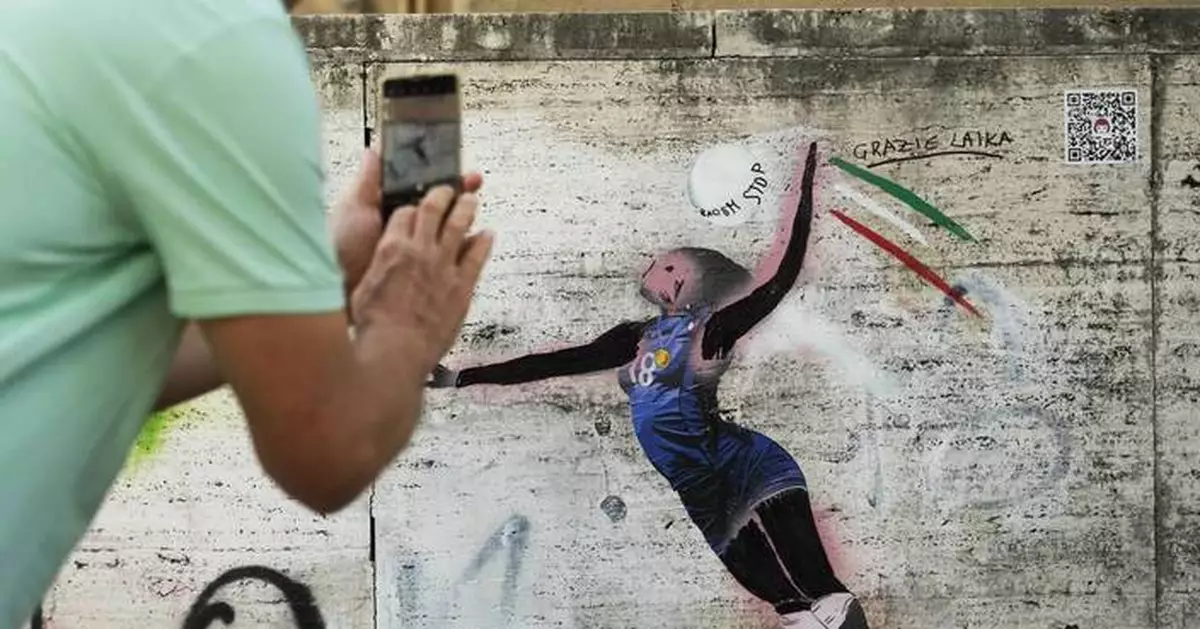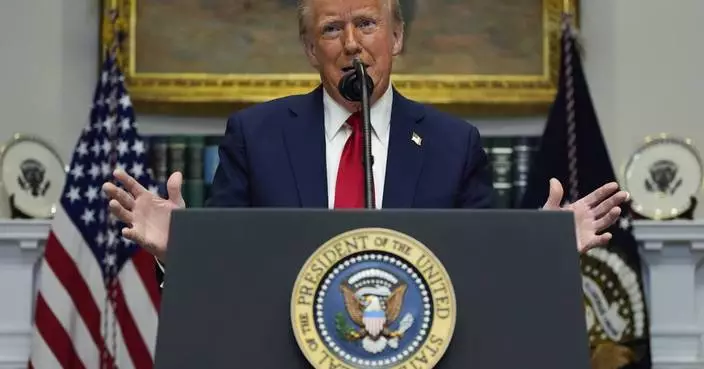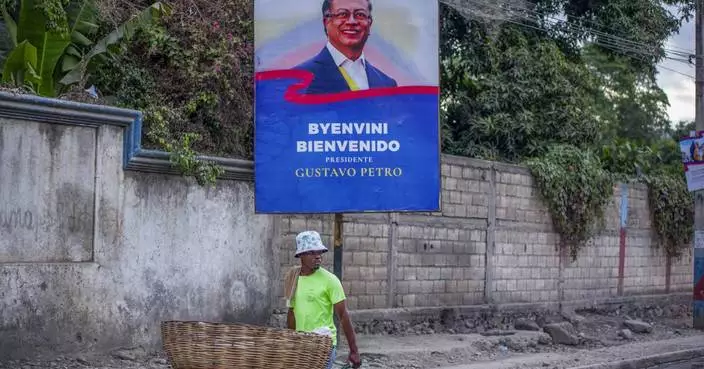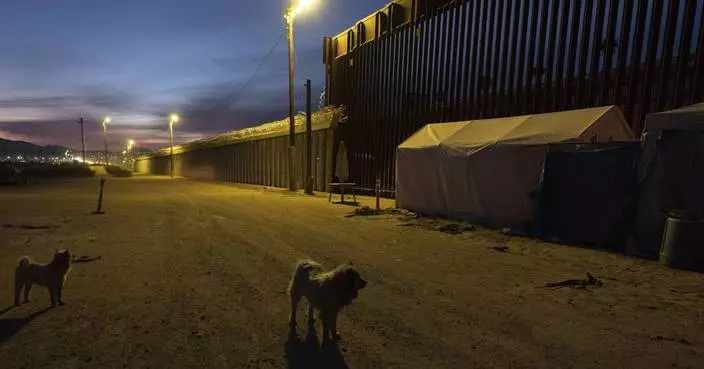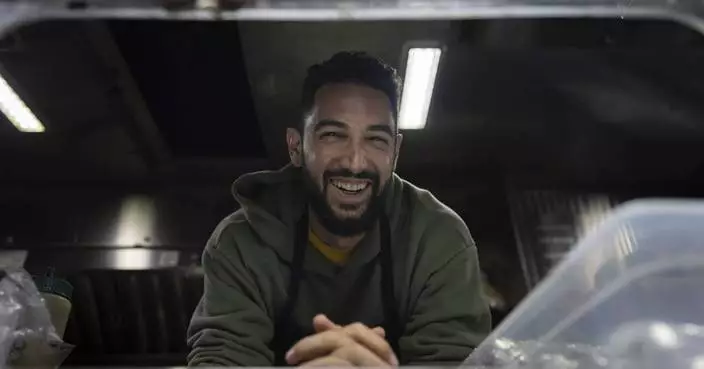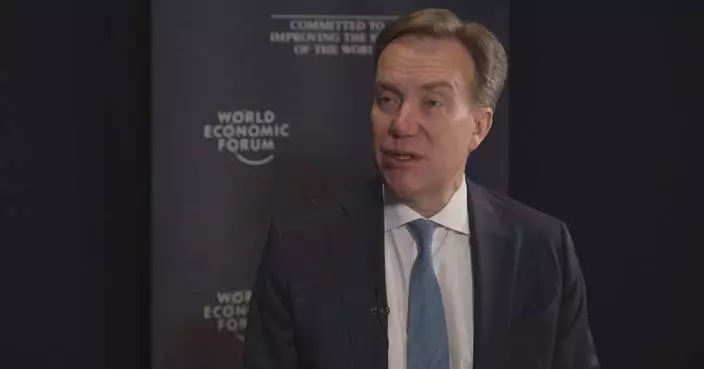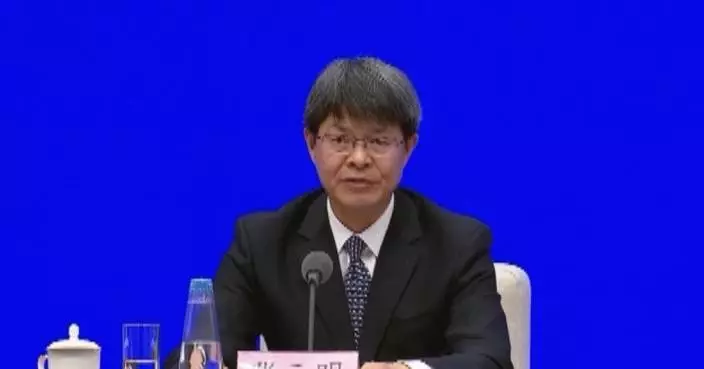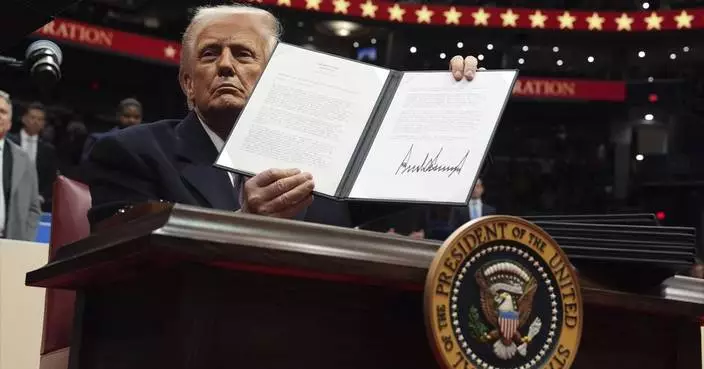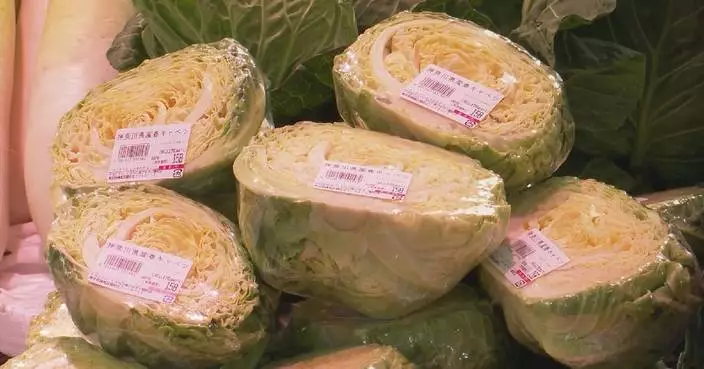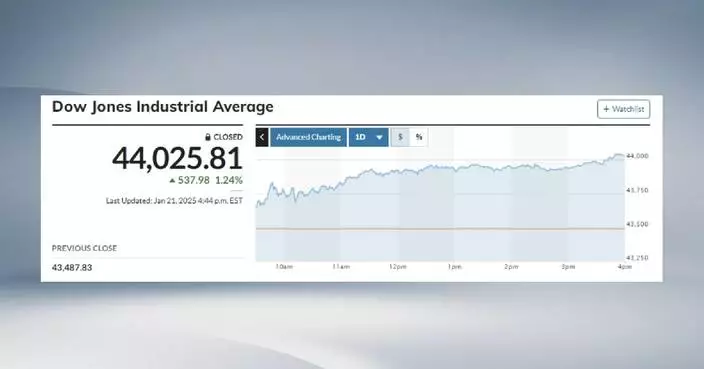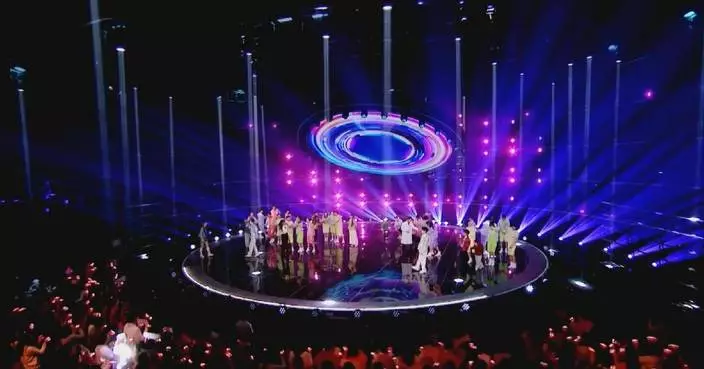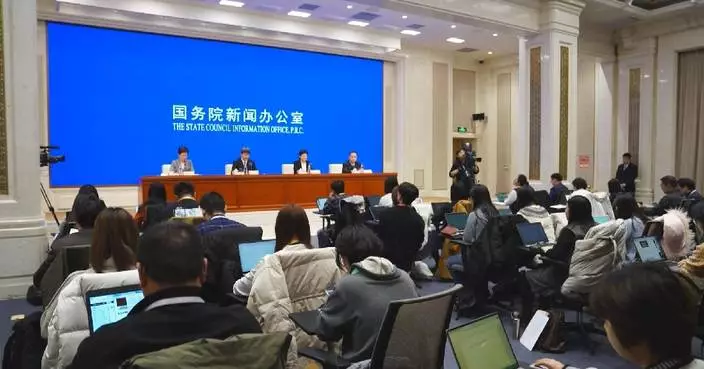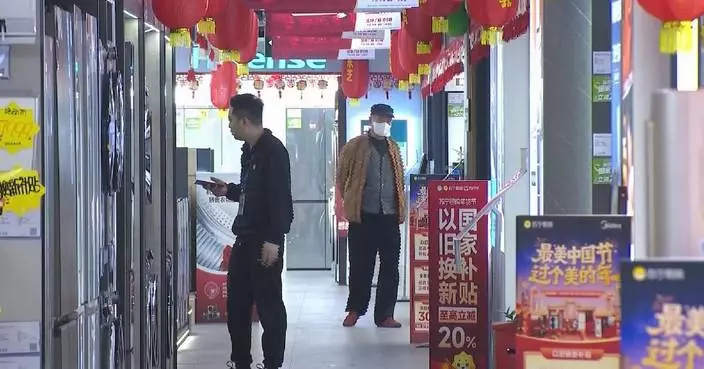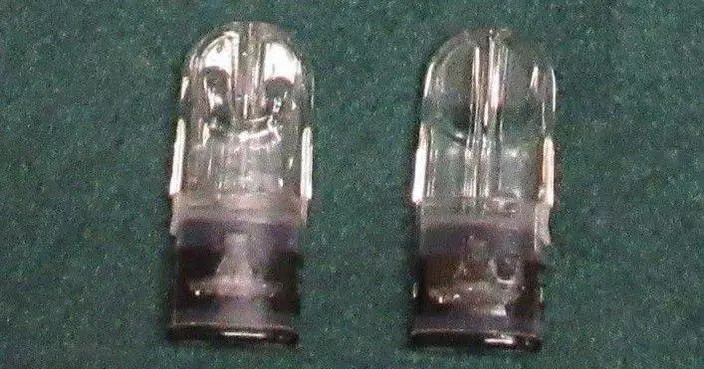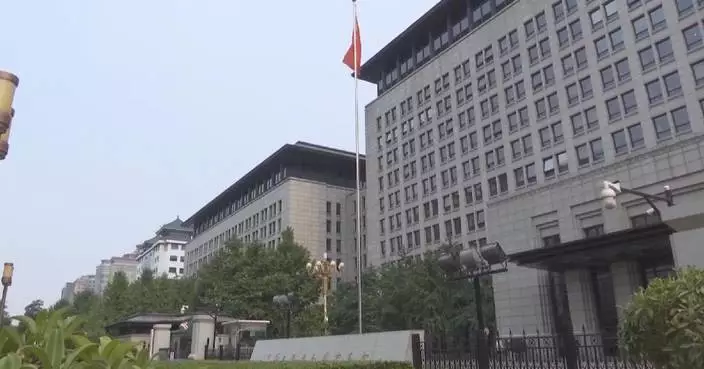ROME (AP) — Rome’s mayor and a chorus of others have denounced the defacing of a street-art celebration of Paola Egonu, who helped lead Italy to its first-ever Olympic gold medal in women's volleyball in Paris and who has faced years of racist abuse at home.
Egonu, who was born in Italy to parents of Nigerian origin, was named tournament MVP after she led Italy to beat the U.S. defending champions on Sunday on the final day of the Games. The gold medal capped a dominant Olympic tournament in which the Italian women lost just one set.
Click to Gallery
From left Gabriela Braga of Brazil, Paola Egonu of Italy and Chiaka Ogbogu of the United States, show their medals after ceremony at the end of the women's volleyball final at the 2024 Summer Olympics, Sunday, Aug. 11, 2024, in Paris, France.(AP Photo/Alessandra Tarantino)
A woman takes a photo of a mural in homage to the Italian volleyball player Paola Egonu, on a wall, in front of the CONI headquarters in Viale Tiziano in Rome, Monday, Aug. 12 2024. (Mauro Scrobogna/LaPresse via AP)
A view of a mural in homage to the Italian volleyball player Paola Egonu, on a wall, in front of the CONI headquarters in Viale Tiziano in Rome, Monday, Aug. 12 2024. (Mauro Scrobogna/LaPresse via AP)
FILE - Paola Egonu of Italy shows her gold medal after the medal ceremony at the end of the women's volleyball final match against the United States of America at the 2024 Summer Olympics, Sunday, Aug. 11, 2024, in Paris, France. (AP Photo/Alessandra Tarantino, File)
A woman takes a picture at Laika's street-art celebration of Paola Egonu, who helped lead Italy to its first-ever Olympic gold medal in women's volleyball, in Rome, Wednesday, Aug. 14, 2024. A day after images of the graffiti began circulating, someone painted over Laika's original work, turning Egonu's dark skin pink and blurring out the words on the volleyball. At some point on Tuesday, someone used a dark marker to try to restore Laika's original design. (AP Photo/Gregorio Borgia)
A woman takes a picture at Laika's street-art celebration of Paola Egonu, who helped lead Italy to its first-ever Olympic gold medal in women's volleyball, in Rome, Wednesday, Aug. 14, 2024. A day after images of the graffiti began circulating, someone painted over Laika's original work, turning Egonu's dark skin pink and blurring out the words on the volleyball. At some point on Tuesday, someone used a dark marker to try to restore Laika's original design. (AP Photo/Gregorio Borgia)
Paola Egonu of Italy takes the ball during a gold medal women's volleyball match between the United States of America and Italy at the 2024 Summer Olympics, Sunday, Aug. 11, 2024, in Paris, France. (AP Photo/Alessandra Tarantino)
Paola Egonu of Italy shows her gold medal after the medal ceremony at the end of the women's volleyball final match against the United States of America at the 2024 Summer Olympics, Sunday, Aug. 11, 2024, in Paris, France.(AP Photo/Alessandra Tarantino)
A man takes a picture at Laika's street-art celebration of Paola Egonu, who helped lead Italy to its first-ever Olympic gold medal in women's volleyball, in Rome, Wednesday, Aug. 14, 2024. (AP Photo/Gregorio Borgia)
Hours after the Games ended, street artist Laika celebrated Egonu with a work of graffiti opposite the Rome headquarters of the Italian Olympic Committee. Entitled “Italianness,” the graffiti showed Egonu, with her trademark long ponytail and wearing her Azzurri blue uniform, spiking a ball that had the words “Stop racism, hatred, xenophobia,” on it.
It was a reference to the years of racist abuse Egonu has endured as a Black athlete in Italy, with prominent figures regularly questioning her citizenship and “Italianness.” Egonu is Italian and was even awarded one of the country’s highest civilian honors in 2021 by the Italian president.
A day after images of Laika's graffiti celebration began circulating, someone painted over the original work, turning Egonu’s dark skin pink and blurring out the words on the volleyball.
Rome Mayor Roberto Gualtieri denounced the vandalism as a “vile, shameful insult” to both Egonu and Laika.
In a statement that praised Egonu's athletic greatness and Laika’s commitment to fighting xenophobia, Gualtieri said it was “sad that in 2024 there are still racists who are prisoners of their own ignorance who want to roll back the hands of history.”
At some point on Tuesday, someone used a dark marker to try to restore Laika’s original design.
In 2022, Egonu threatened to quit the national team after being subject to racist abuse online questioning whether she was Italian, evidence of common assumptions here that anyone who is Black is a newly arrived migrant.
In a social media post explaining the graffiti, Laika wrote that there’s no place in Italy for xenophobia, racism, hatred or intolerance. “Racism is a social plague that must be overcome. Doing so via sport is so important,” Laika wrote.
The winning Italian volleyball team featured other Black Italians, as well as Ekaterina Antropova, a Russian who has long played in Italy and was granted Italian citizenship by the government last year.
The vandalism was front-page news in Italy on Wednesday, with major dailies featuring the before and after images of Laika’s work and commentary lamenting how anyone could question Egonu’s “Italianness” after she brought such unprecedented glory to Italy.
Targeted for particular ire was the new European Parliamentarian for the xenophobic League party, Roberto Vannacci, who wrote in his 2023 racist manifesto that Egonu's “somatic traits” weren't like most Italians — a comment he repeated after Italy's Olympic victory while nevertheless congratulating Egonu and the team.
“Pink skin lives only in the infantile fantasies of those who were born in another world and stayed there as misfits,” wrote Giulia Zonca in Wednesday’s La Stampa daily.
On Wednesday at the site of the defaced graffiti, passers-by were well aware of the vandalism, and cheered that someone had tried to restore Egonu’s likeness to Laika's original.
“Honestly I don’t see why anyone would ruin a nice homage to an athlete who brought honor to Italy,” said Irene Cagli. “We are all Italian, each of us is different, each is the same, and it’s beautiful this way.”
The issue also reignited the long-standing debate in Italy over citizenship, given that Egonu – like any child born and raised in Italy to non-Italian parents – had no automatic right to Italian citizenship at birth. She obtained it later, after her parents became Italian.
“We believe that those who are born or are raised in Italy is Italian, and we’ll continue to fight to change the law on citizenship,” said the head of the Democratic Party, Elly Schlein.
AP visual journalists Leila El Zabri and Silvia Stellacci contributed to this report.
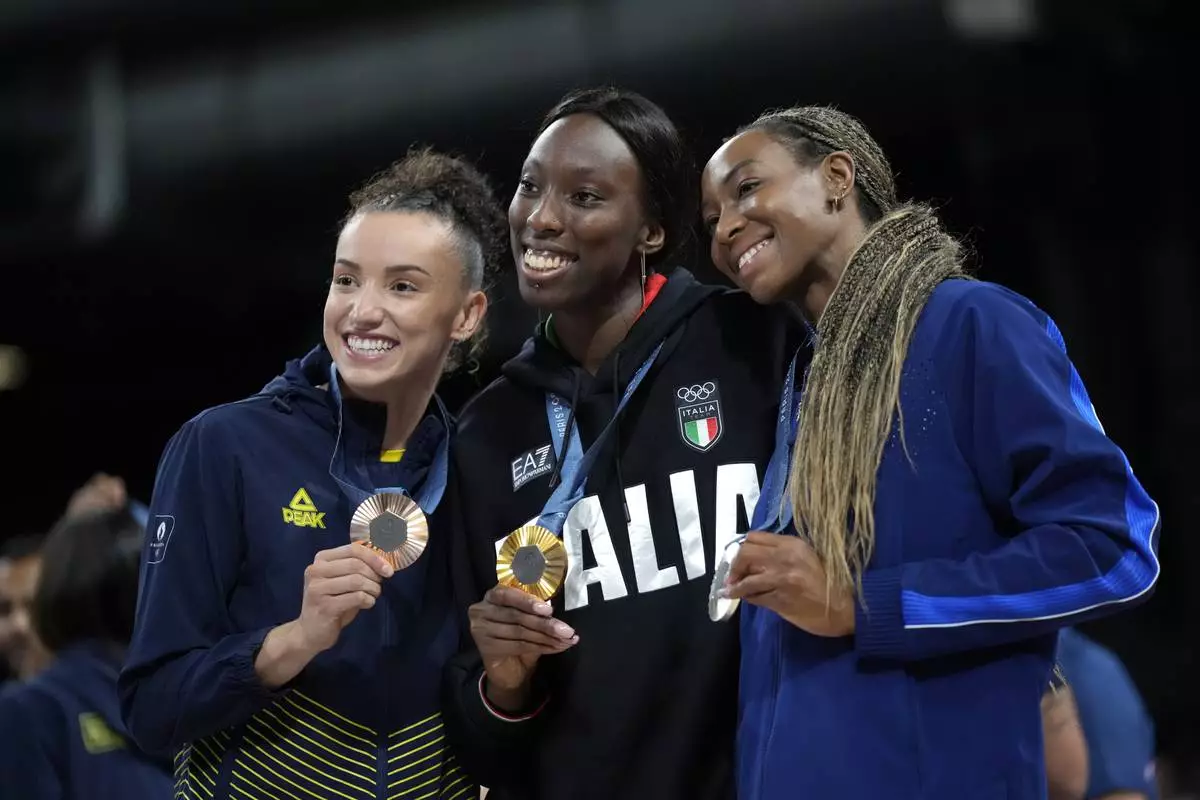
From left Gabriela Braga of Brazil, Paola Egonu of Italy and Chiaka Ogbogu of the United States, show their medals after ceremony at the end of the women's volleyball final at the 2024 Summer Olympics, Sunday, Aug. 11, 2024, in Paris, France.(AP Photo/Alessandra Tarantino)
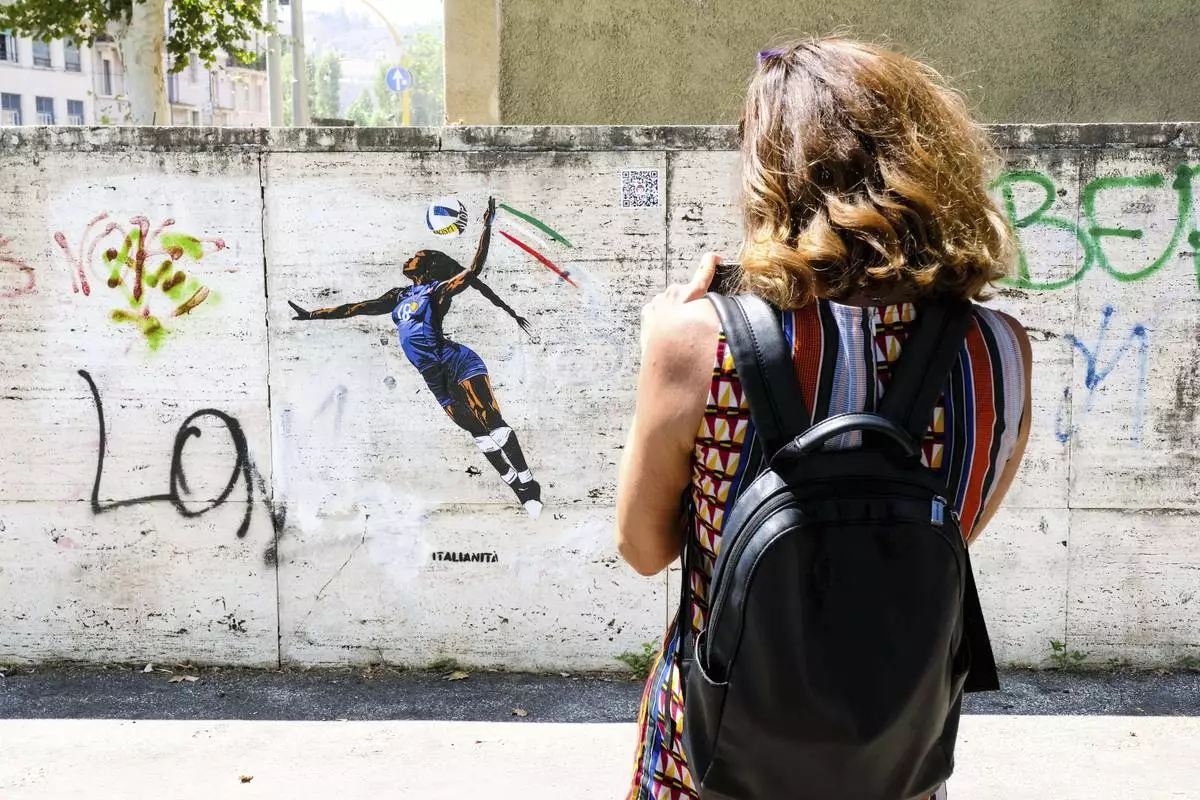
A woman takes a photo of a mural in homage to the Italian volleyball player Paola Egonu, on a wall, in front of the CONI headquarters in Viale Tiziano in Rome, Monday, Aug. 12 2024. (Mauro Scrobogna/LaPresse via AP)
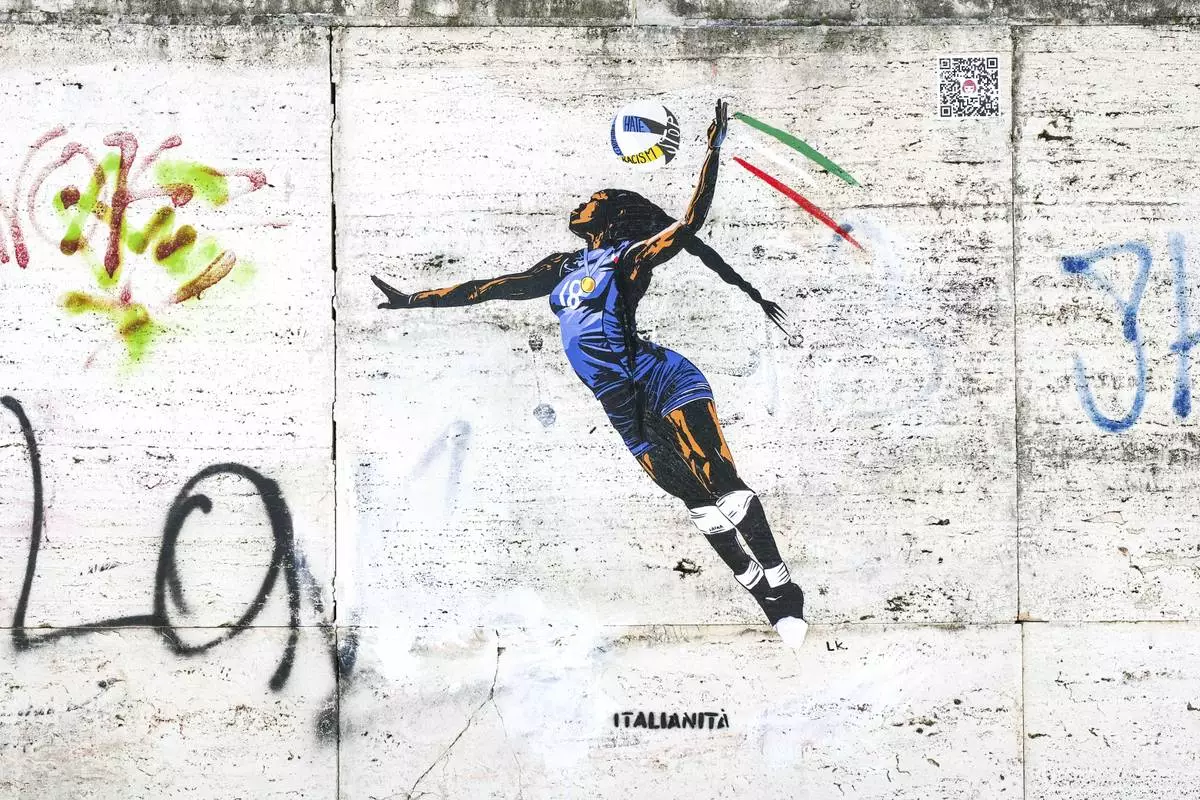
A view of a mural in homage to the Italian volleyball player Paola Egonu, on a wall, in front of the CONI headquarters in Viale Tiziano in Rome, Monday, Aug. 12 2024. (Mauro Scrobogna/LaPresse via AP)
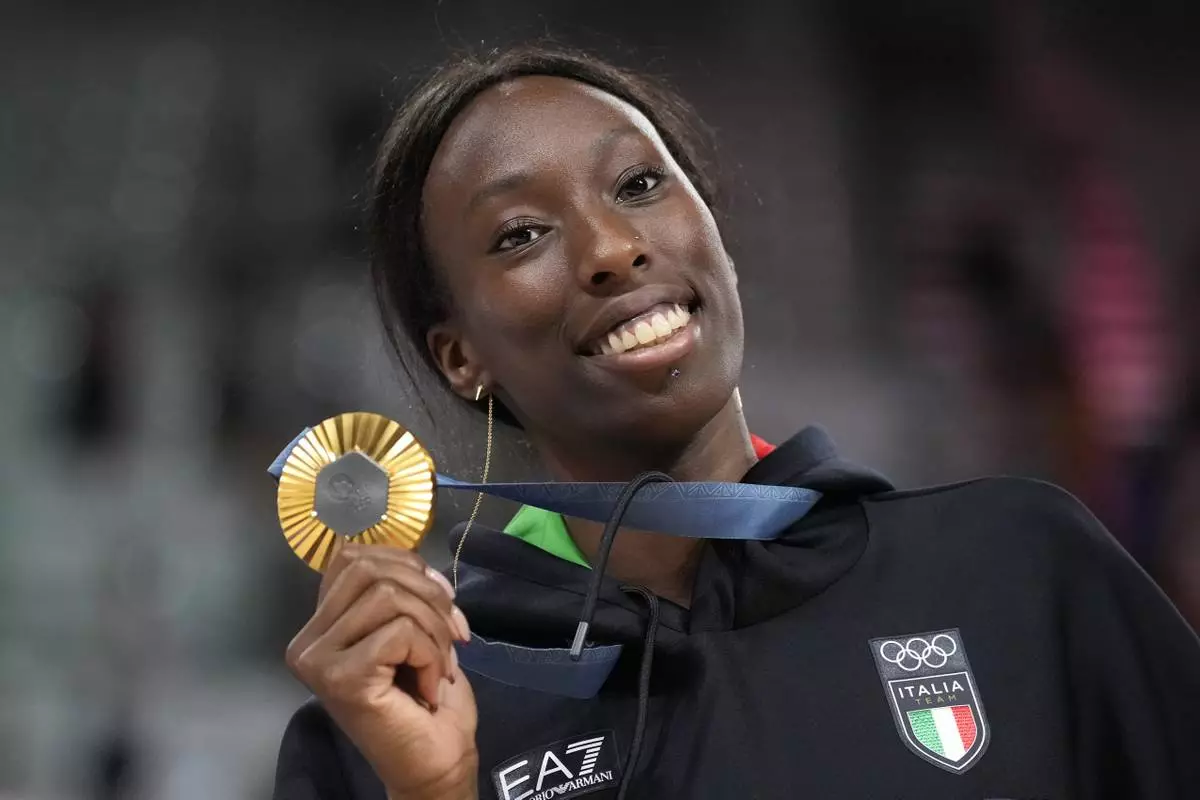
FILE - Paola Egonu of Italy shows her gold medal after the medal ceremony at the end of the women's volleyball final match against the United States of America at the 2024 Summer Olympics, Sunday, Aug. 11, 2024, in Paris, France. (AP Photo/Alessandra Tarantino, File)
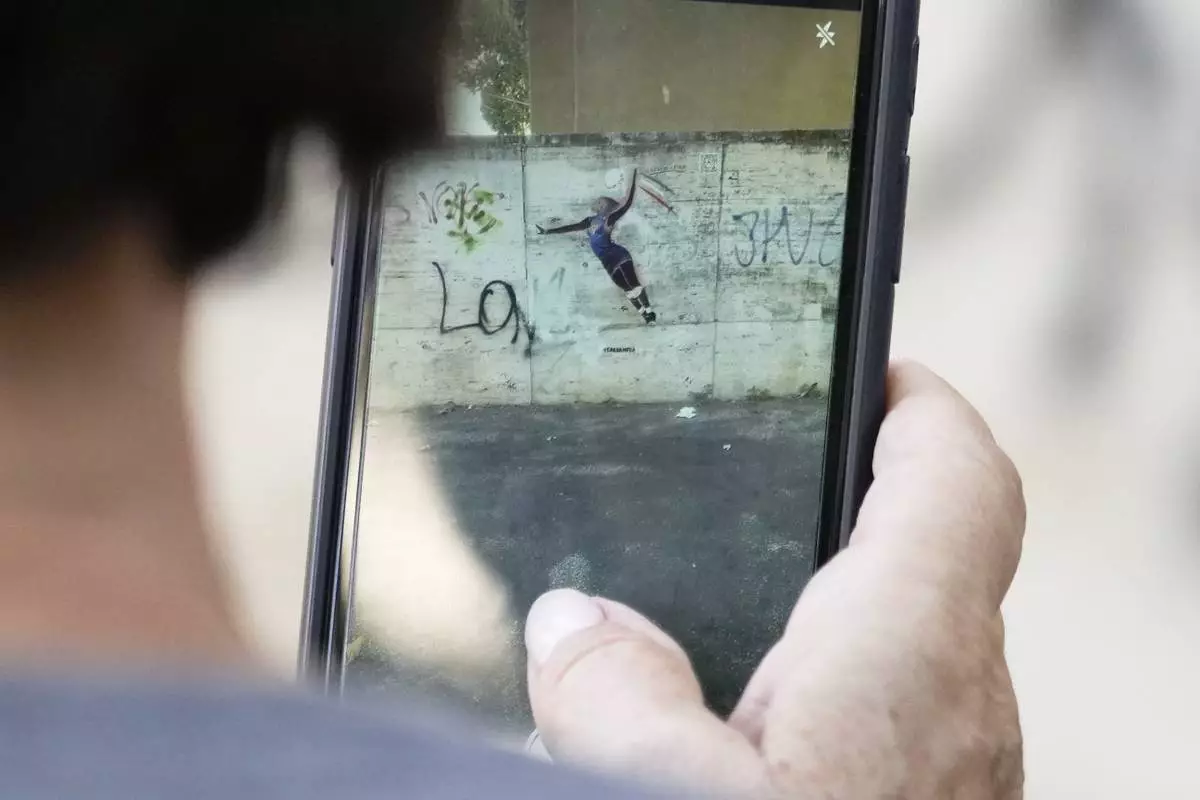
A woman takes a picture at Laika's street-art celebration of Paola Egonu, who helped lead Italy to its first-ever Olympic gold medal in women's volleyball, in Rome, Wednesday, Aug. 14, 2024. A day after images of the graffiti began circulating, someone painted over Laika's original work, turning Egonu's dark skin pink and blurring out the words on the volleyball. At some point on Tuesday, someone used a dark marker to try to restore Laika's original design. (AP Photo/Gregorio Borgia)
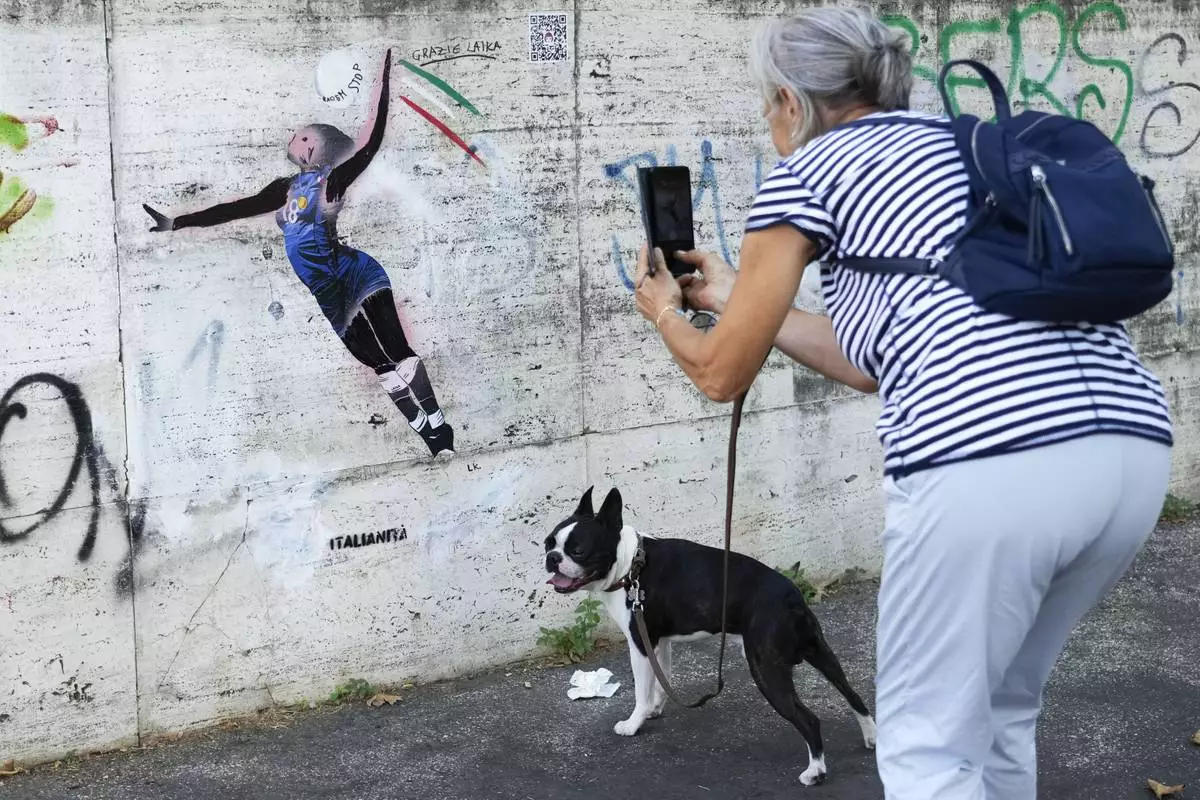
A woman takes a picture at Laika's street-art celebration of Paola Egonu, who helped lead Italy to its first-ever Olympic gold medal in women's volleyball, in Rome, Wednesday, Aug. 14, 2024. A day after images of the graffiti began circulating, someone painted over Laika's original work, turning Egonu's dark skin pink and blurring out the words on the volleyball. At some point on Tuesday, someone used a dark marker to try to restore Laika's original design. (AP Photo/Gregorio Borgia)
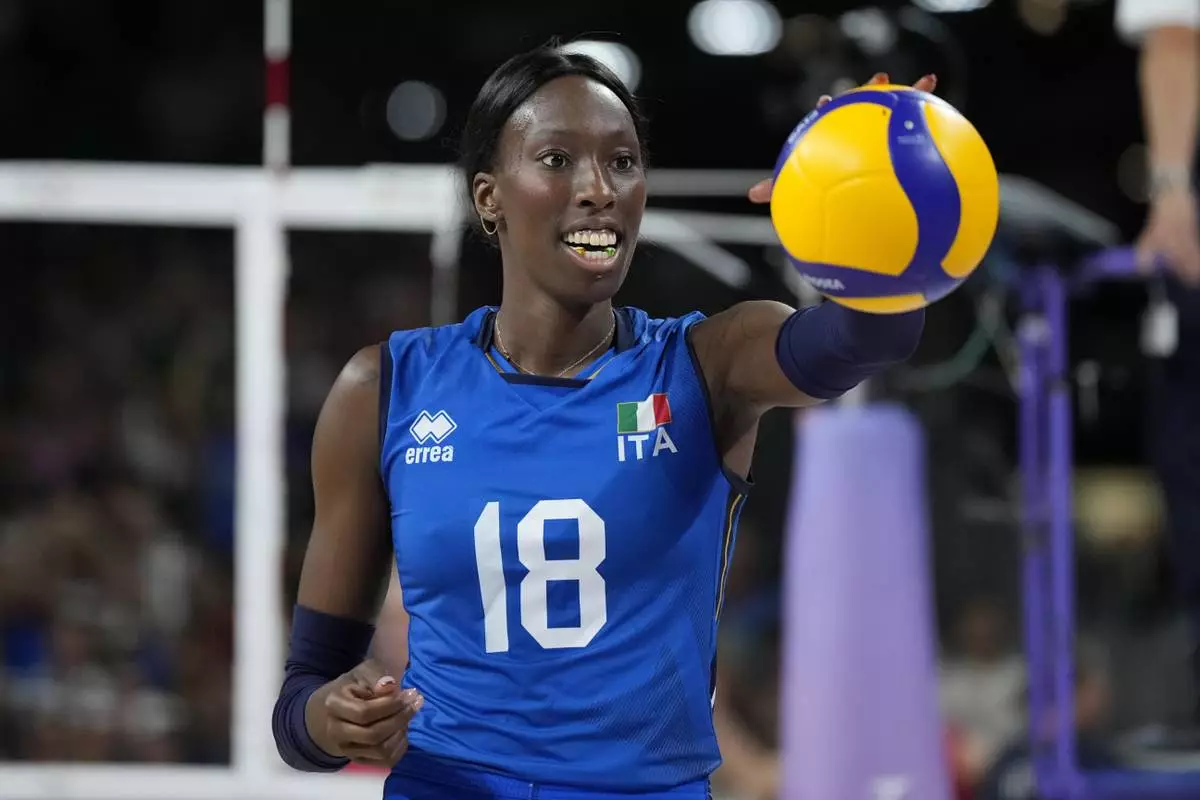
Paola Egonu of Italy takes the ball during a gold medal women's volleyball match between the United States of America and Italy at the 2024 Summer Olympics, Sunday, Aug. 11, 2024, in Paris, France. (AP Photo/Alessandra Tarantino)
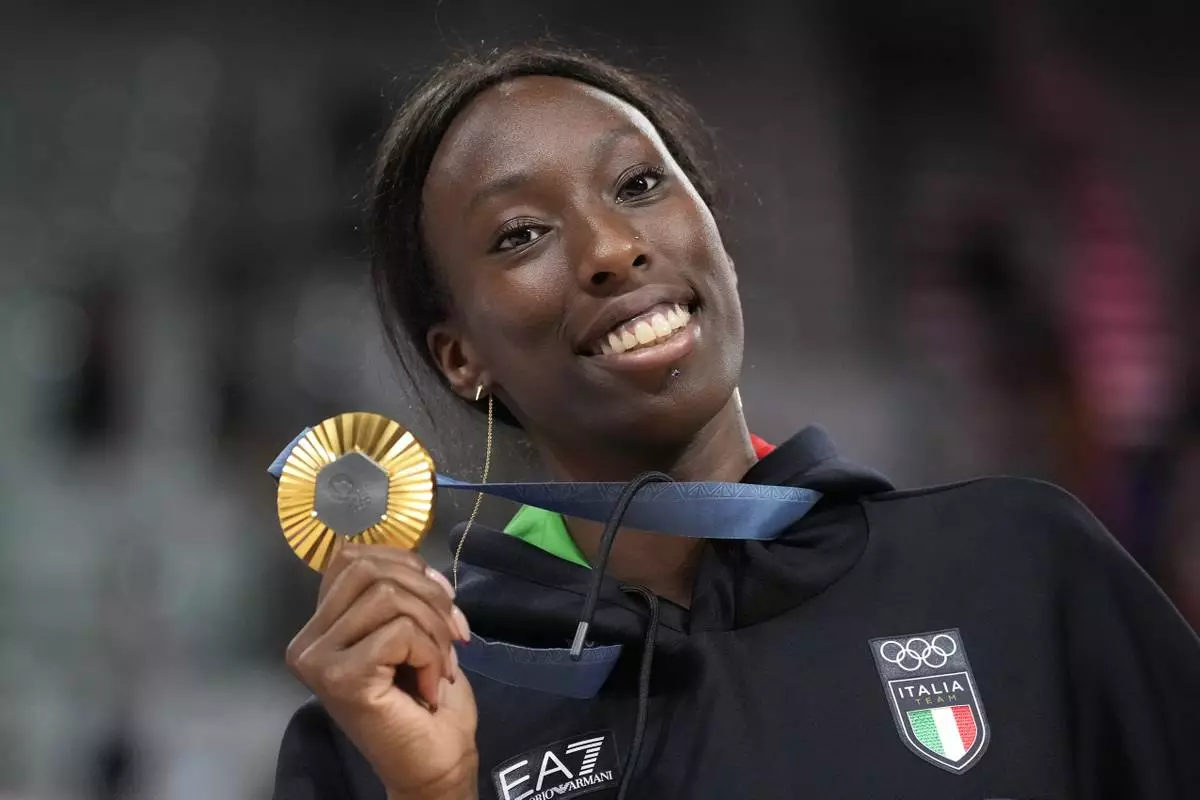
Paola Egonu of Italy shows her gold medal after the medal ceremony at the end of the women's volleyball final match against the United States of America at the 2024 Summer Olympics, Sunday, Aug. 11, 2024, in Paris, France.(AP Photo/Alessandra Tarantino)
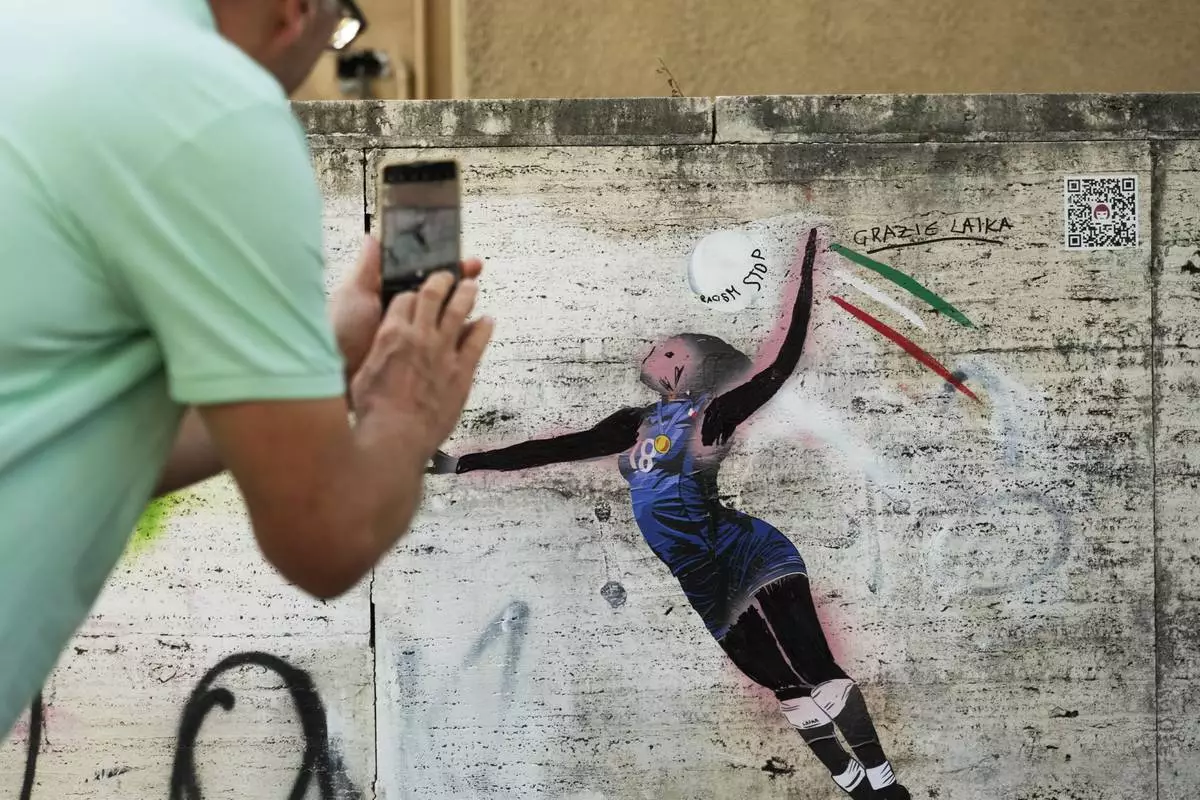
A man takes a picture at Laika's street-art celebration of Paola Egonu, who helped lead Italy to its first-ever Olympic gold medal in women's volleyball, in Rome, Wednesday, Aug. 14, 2024. (AP Photo/Gregorio Borgia)
ROME (AP) — Human rights groups voiced outrage Wednesday after Italy released a Libyan warlord on a technicality, after he was arrested on a warrant from the International Criminal Court accusing him of war crimes and crimes against humanity.
The Hague-based court, for its part, issued a more diplomatic response but its anger appeared evident. In a stern statement late Wednesday, the ICC reminded Italy that it is obliged to “cooperate fully” with its prosecutions and said it was still awaiting information about what exactly Rome had done.
The reaction came after the Italian government on Tuesday released and sent back home Ossama Anjiem, also known as Ossama al-Masri, who heads the Tripoli branch of the Reform and Rehabilitation Institution, a notorious network of detention centers run by the government-backed Special Defense Force.
Al-Masri had been arrested Sunday in Turin, where he reportedly had attended the Juventus-Milan soccer match the night before. The ICC warrant, dated the day before, accused al-Masri of war crimes and crimes against humanity committed in the Mitiga prison in Libya starting in 2015 that are punishable with life in prison.
The ICC said he was accused of murder, torture, rape and sexual violence. It said the warrant was transmitted to member states on Saturday, including Italy, and that the court had also provided real-time information that he had entered Europe.
The court said it had reminded Italy at the time to contact it “without delay” if it ran into any problems cooperating with the warrant.
But Rome’s court of appeals ordered al-Masri freed Tuesday, and he was sent back to Libya aboard an aircraft of the Italian secret services, because of what the appeals court said was a procedural error in his arrest. The ruling said Justice Minister Carlo Nordio should have been informed ahead of time, since the justice ministry handles all relations with the ICC.
The ICC said it had not been given prior notice of the Rome court's decision, as required, and “is seeking, and is yet to obtain, verification from the authorities on the steps reportedly taken.”
Al-Masri returned to Tripoli late Tuesday, received at the Mitiga airport by supporters who celebrated his release, according to local media. Footage circulated online showed dozens of young men chanting and carrying what appeared to be al-Masri on their shoulders.
“This is a stunning blow to victims, survivors and international justice and a missed opportunity to break the cycle of impunity in Libya,” said Amnesty International’s Esther Major, deputy director of research for Europe.
Nordio appeared in the Senate on Wednesday for a previously-scheduled briefing, and was grilled by outraged opposition lawmakers who demanded clarity about what happened. Former Premier Matteo Renzi accused the right-wing government of hypocrisy given its stated crackdown on human traffickers.
“But when a trafficker whom the International Criminal Court tells us is a dangerous criminal lands on your table, it’s not like you chase him down, you brought him home to Libya with a plane of the Italian secret services,” said Renzi of the Italia Viva party. “Either you’ve gone crazy or this is the image of a hypocritical, indecent government.”
The Democratic Party demanded Premier Giorgia Meloni respond specifically to parliament about the case, saying it raised “grave questions” given the known abuses in Libyan prisons for which al-Masri is accused. Nordio didn't respond.
Italy has close ties to the internationally recognized government in Tripoli, on whom it relies to patrol its coasts and prevent waves of migrants from leaving. Any trial in The Hague of al-Masri could bring unwanted attention to Italy’s migration policies and its support of the Libyan coast guard, which it has financed to prevent migrants from leaving.
Human rights groups have documented gross abuses in the Libyan detention facilities where migrants are kept, and have accused Italy of being complicit in their mistreatment.
Two humanitarian groups, Mediterranea Saving Humans and Refugees in Libya, which have documented abuses committed against migrants in Libyan detention facilities, said they were incredulous that Italy let al-Masri go.
David Yambio, a 27-year-old from South Sudan who said he was abused by al-Masri while he was detained at the Mitiga prison in 2019-2020, said he felt betrayed by Italy. Yambio, who eventually escaped from the prison and arrived in Italy on a smuggler’s boat in 2022, said he had a “fleeting feeling of justice” when he heard that al-Masri had been arrested in Turin.
“Those who waited long before me, the Libyans who are victims of his criminal network, his war crimes, have been wanting for this day to come,” said Yambio, who received asylum and now lives in Modena and runs his Refugees in Libya advocacy group. “But when it came, it was immediately extinguished hours before it could even truly be felt in our hearts.”
But Tarik Lamloum, a Libyan activist working with the Belaady Organization for Human Rights which focuses on migrants in Libya, said Italy’s release of al-Masri was expected. He said his release shows the power of militias who control the flow of migrants to Europe through Libya’s shores.
“Tripoli militias are able to pressure (Italy) because they control the migrants file,” he told The Associated Press.
Militias in western Libya are part of the official state forces tasked with intercepting migrants at sea, including in the EU-trained coast guard. They also run state detention centers, where abuses of migrants are common.
As a result, militias — some of them led by warlords the U.N. has sanctioned for abuses — benefit from millions in funds the European Union gives to Libya to stop the migrant flow to Europe.
The European Commission spokesman reaffirmed all EU members had pledged to cooperate with the court.
“We respect the court’s impartiality and we are fully attached to international criminal justice to combat impunity," said EU commission spokesman Anouar El Anouni. In a 2023 summit, the EU leaders committed “to cooperate fully with the court, including rapid execution of any pending arrests,” he added.
Magdy reported from Cairo. Paolo Santalucia in Rome and Molly Quell in The Hague contributed.
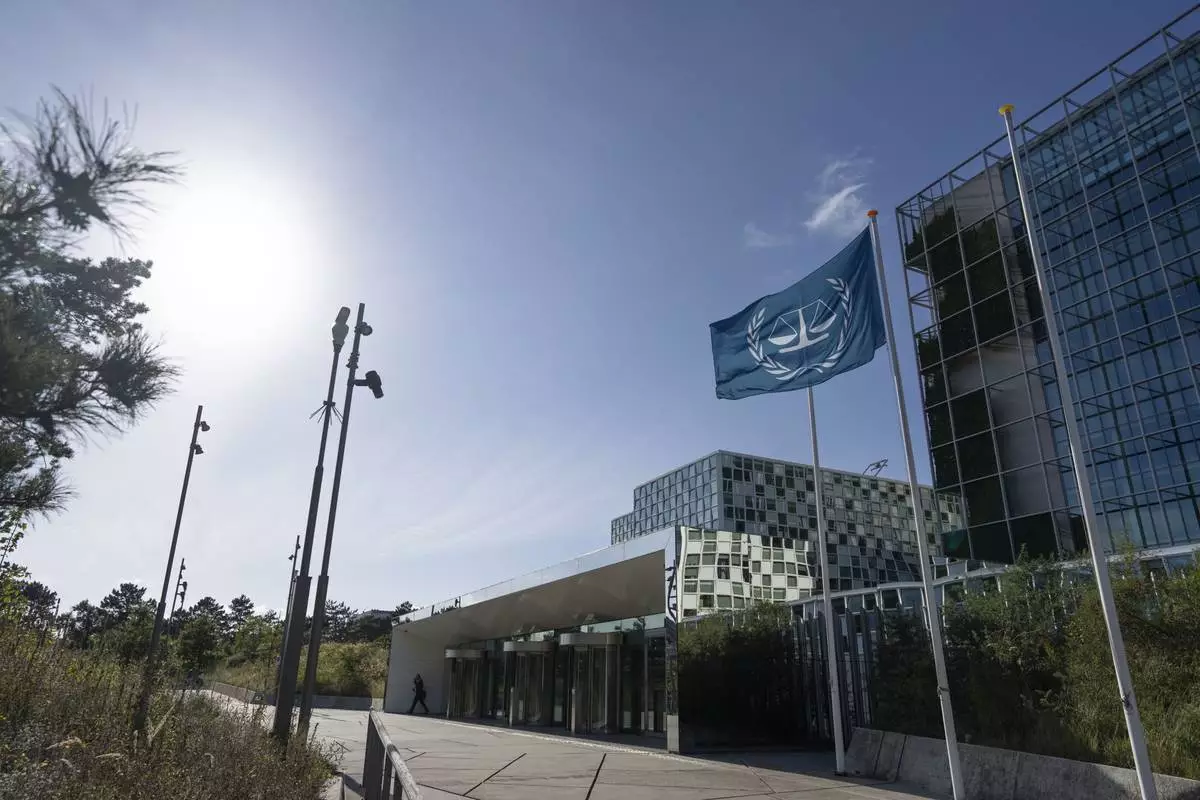
FILE - View of the ICC, the International Criminal Court, in The Hague, Netherlands, Monday, Sept. 16, 2024. (AP Photo/Peter Dejong, File)
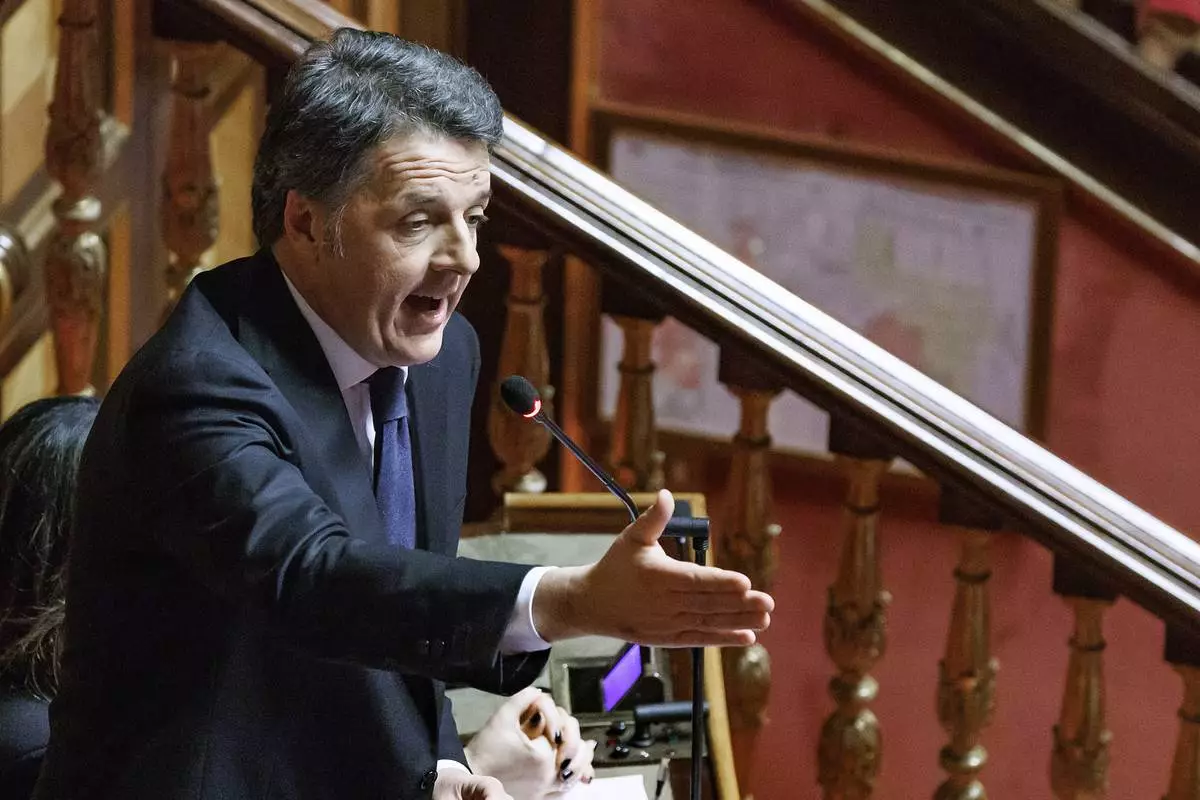
Former Prime Minister Matteo Renzi makes his remarks during Justice Minister Carlo Nordio's appearance at the Senate for the report on the justice administration, in Rome, Wednesday, Jan. 22, 2025. (Roberto Monaldo//LaPresse via AP)
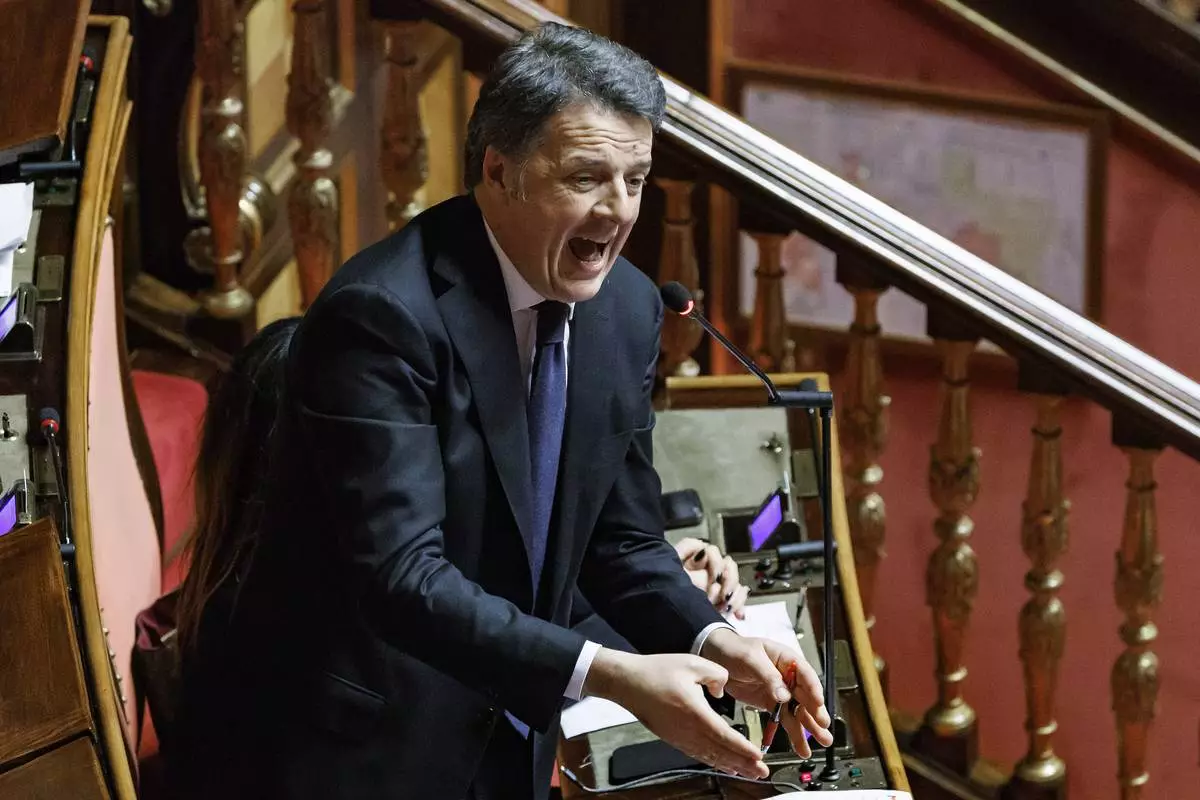
Former Prime Minister Matteo Renzi makes his remarks during Justice Minister Carlo Nordio's appearance at the Senate for the report on the justice administration, in Rome, Wednesday, Jan. 22, 2025. (Roberto Monaldo//LaPresse via AP)
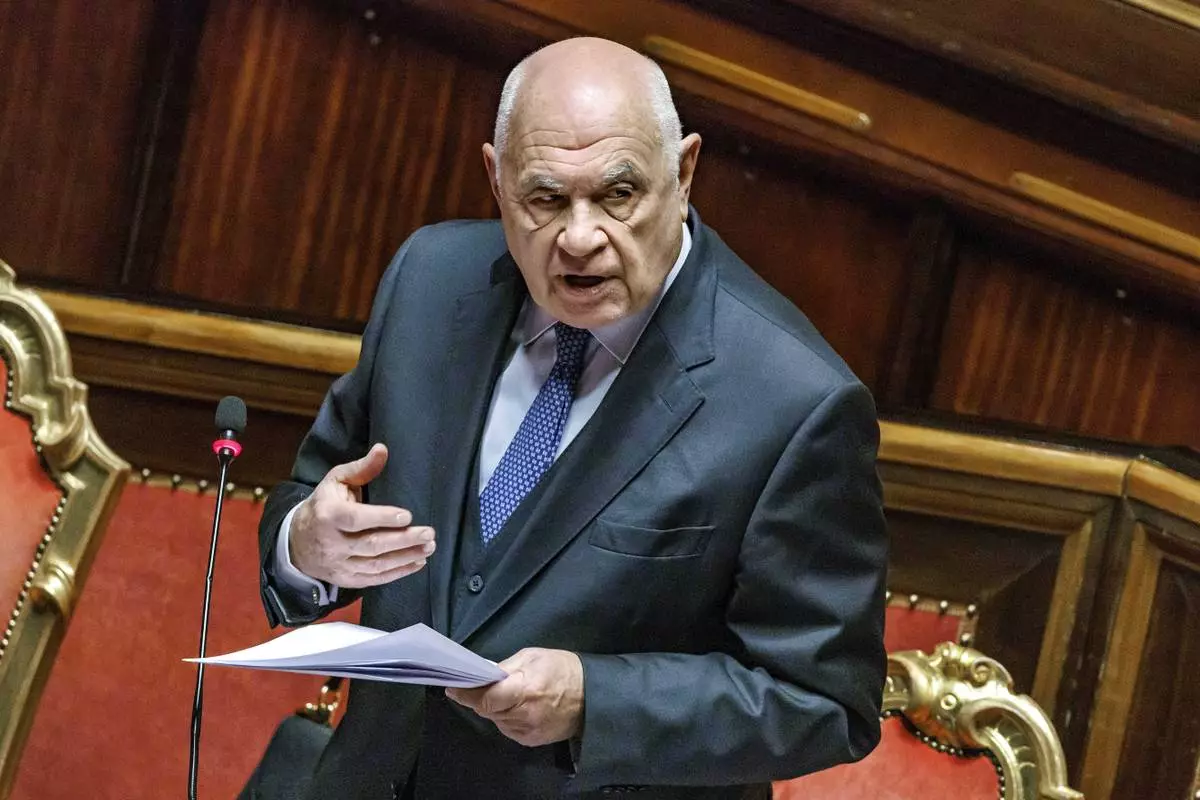
Justice Minister Carlo Nordio addresses the Senate during the report on the justice administration, in Rome, Wednesday, Jan. 22, 2025. (Roberto Monaldo//LaPresse via AP)
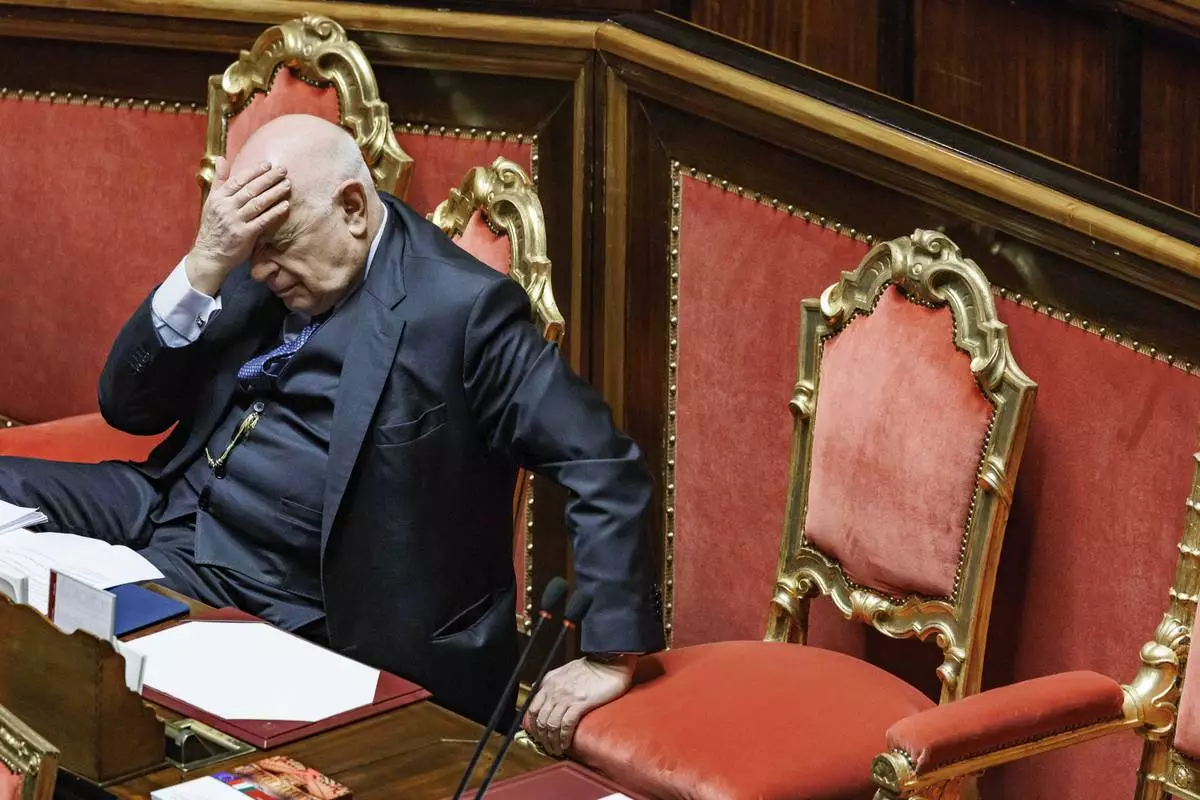
Justice Minister Carlo Nordio puts his hand to his head during the presentation of the report on the justice administration, at the Senate, in Rome, Wednesday, Jan. 22, 2025. (Roberto Monaldo//LaPresse via AP)
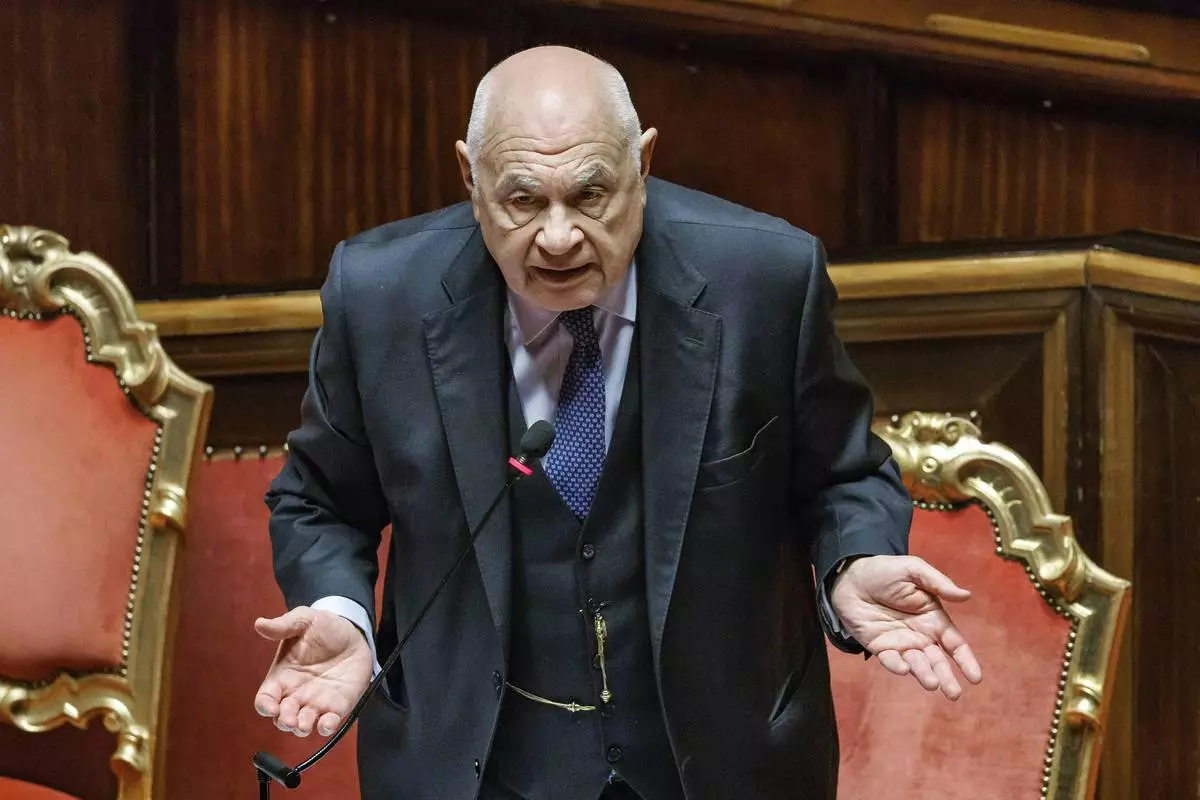
Justice Minister Carlo Nordio addresses the Senate during the report on the justice administration, in Rome, Wednesday, Jan. 22, 2025. (Roberto Monaldo//LaPresse via AP)











